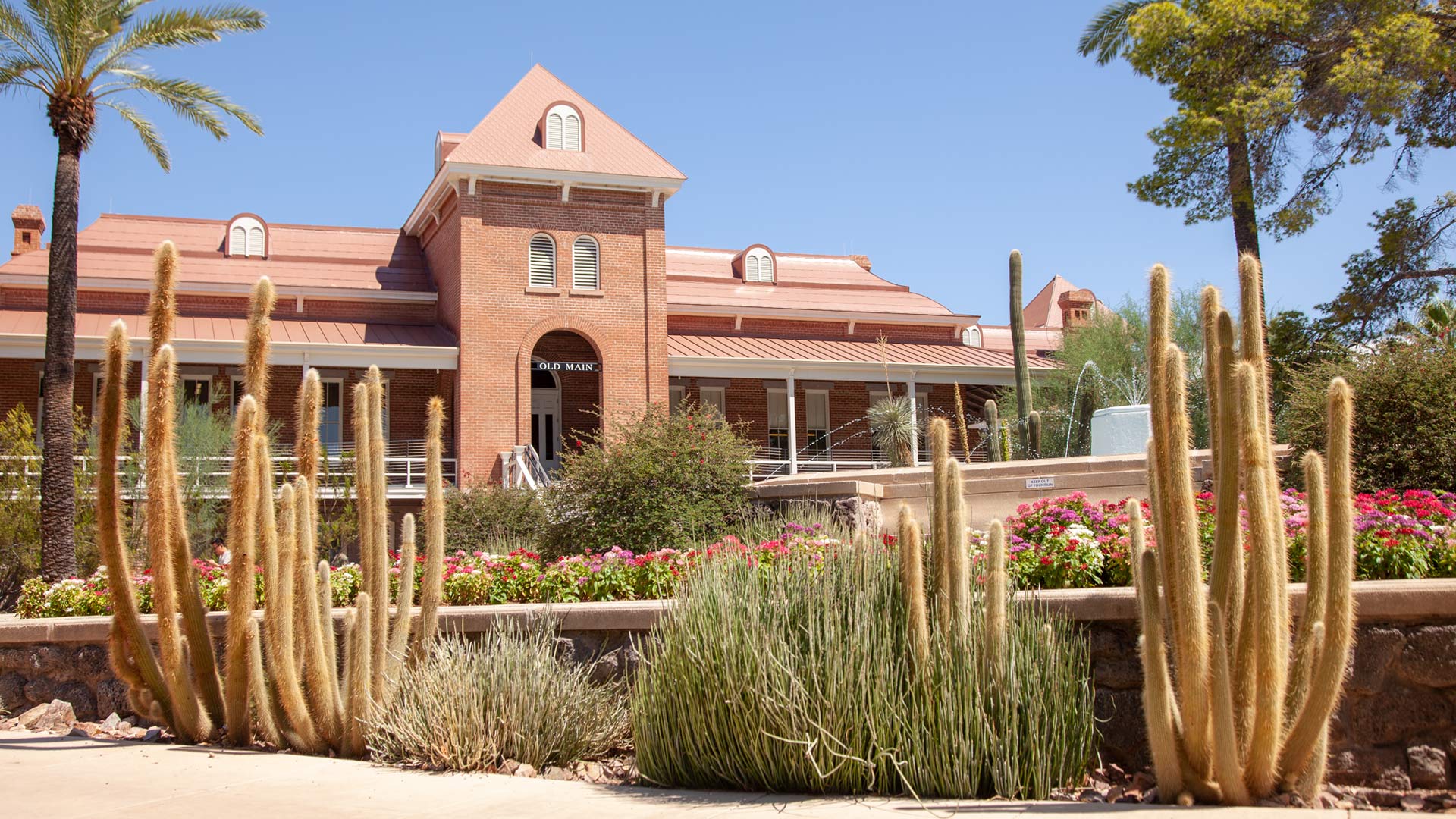 Old Main on the University of Arizona campus.
Old Main on the University of Arizona campus.
The University of Arizona (UA) has partnered with the Arizona Commission for the Deaf and the Hard of Hearing (ACDHH), to provide free hearing health care and rehabilitation services to individuals across Tucson and southern Arizona, who are 21 and older that lack insurance.
Alongside Arizona State University (ASU) and Northern Arizona University (NAU), the Hearing Healthcare Assistant Project (HHAP) provides hearing aids and one year of aural rehabilitation for low-income individuals who suffer from hearing loss, at no cost.
The state agency initially launched the Hearing Healthcare Program in 2017, and partnered up with ASU in May 2021, when the university received a donation of “several hundred brand new hearing aids”, said Michele Michaels, hearing healthcare program manager with the ACDHH.
Due to a lack of funding to test and properly fit patients with those aids, ASU reached out to the state agency and the two organizations “got things rolling” Michaels said.
“We just have a lot of lower-income adults who really need the help and don’t really know where to turn, don’t have alternatives and can’t afford the hearing cost and all of that,” Michaels said. “With our expansion to the UA and also NAU, we’ve got the three areas of the state pretty well covered.”
As a hard of hearing person herself, Michaels said that she understands the importance of the aural rehabilitation process, something that all three universities can provide.
“That component teaches a person how to communicate effectively, how to do communication repair strategies, how to access their device, how to use their device at movie theaters, playing cards with their friends, just all that kind of other extra additional things that people don’t usually get at the audiology or hearing aid dispenser office,” Michaels said.
So far, about 71 participants have received hearing aids through the program since the program has kicked off.
Michaels looks forward to helping more.
Amy Wheeler, audiologist at the UA Speech Language, and Hearing Sciences Clinic said transportation is also a big issue for many patients.
“A lot of outlying areas in Arizona don’t have enough providers and so many patients are driving 30 minutes, 45 minutes to get to their audiologist appointments and so that’s kind of an issue across the state,” Wheeler said.
The UA clinic, which is housed on the first-floor of the department is in close proximity to a destination on the Sun Link Streetcar route. Wheeler said this provides patients with other means of transportation to the campus clinic.
“There’s just a real wide variety of barriers that we see with this issue, same like any other healthcare issue,” Wheeler said.
From having health insurance to obtaining accurate information from primary care providers, there are different factors that can play a role in a patient’s access to care.
Michaels estimates that the program has already reached thousands of people over the last couple of years, even just by sharing information or referrals to other providers.
She added that the commission initially began seeking funding back in 2015, and asked for a special budget request submitted to the AZ legislature which was received in 2017. The special budget package allowed the agency to address unmet need for hearing healthcare for low income adults throughout the state and create the Hearing Healthcare Program and subsequently, the Hearing Healthcare Assistance Project in 2021.
“We were allocated about $100,000 so that we can reimburse the state universities for the hearing test, the fitting of the hearing aid, [and] the products that they need,” Michaels said.
The funding has been able to support hearing healthcare services from the initial allocation to reimburse state universities and will be able to support the program for at least a few more years, Michaels said. Other agency funding is used to support a hard of hearing specialist position who works with HHAP clients.
“If the state Medicaid, if AHCCCS [Arizona health Care Cost Containment System] were able to step in… and say this is something we need to fund when people need hearing aids, that would be just absolutely awesome,” Michaels said.
“Over 200,000 people here in our state that have hearing loss, that maybe fit an income bracket associated with this type of project so a lot of our neighbors here in the state need support with this issue,” Wheeler said.
The greatest need on behalf of the three university partners are hearing aids Michaels said, the institutions depend on donations from hearing aid manufacturers.
Individuals seeking hearing healthcare resources can call (602) 542-3323 or visit www.acdhh.org.
The UA Speech, Language, and Hearing Clinic is open Monday through Friday, from 8 a.m. to 5 p.m.

By submitting your comments, you hereby give AZPM the right to post your comments and potentially use them in any other form of media operated by this institution.